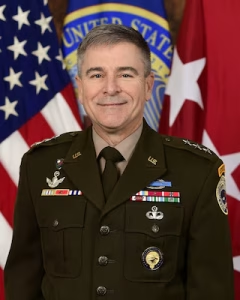
U.S. Cyber Command increased the number of operations in 2024 over 2023 and is on track for even more in 2025, the acting commander of CYBERCOM said last Friday. “Deterrence is central to our strategy in cyberspace, and we are focused on maintaining a credible capability that dissuades adversaries from targeting our critical infrastructure,” Army Lt. Gen. William Hartman told the House Armed Services Committee’s panel that oversees cybersecurity. “In 2024 we executed over 6,000 successful operations, roughly 25 percent…

 By
By 








